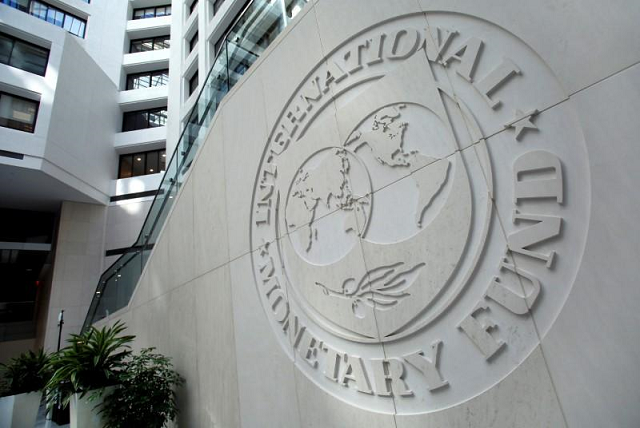Pakistan assures IMF of increase in tax collection
Plans to utilise information being received under multilateral tax conventions, give push to cases under litigation

Higher courts have assured the government that they would set up special benches to hear tax matters. The FBR said in the next three months it could collect an additional Rs40-45 billion from the 15 major cases currently stuck in the courts. PHOTO: REUTERS
The government has decided to include Saudi Arabia in the list of countries where Pakistanis have undeclared assets which have not been disclosed to the Federal Board of Revenue (FBR).
FBR officials met with a visiting IMF team and briefed them about some corrective administrative measures that they were planning to take to enhance revenues. Tax authorities have claimed that they will recover significant revenues from Pakistani residents who have hidden offshore assets.
FBR’s Inland Revenue Policy member Dr Mohammad Iqbal informed the IMF that Pakistan had started receiving information from roughly 60 countries under the Organisation for Economic Cooperation and Development (OECD) Multilateral Convention on Mutual Administrative Assistance in Tax Matters.
IMF request for CPEC contract details declined
Islamabad is also a signatory of the Multilateral Convention to Implement Tax Treaty Related Measures to Prevent BEPS (base erosion and profit shifting).
Iqbal specifically mentioned Saudi Arabia where Pakistanis owned huge immovable assets. So far, the tax authorities’ focus has remained on properties in the United Arab Emirates (UAE).
The FBR officials said Pakistan expected good results from its drive to recover taxes on assets stashed abroad.
The government has already announced that it will go after 100 top tax dodgers in a bid to give a loud message to tax evaders. It is facing a gigantic task to bring back billions of dollars stashed in offshore havens.
Rupee hits 2-month low on depreciation fears
The OECD convention is the most powerful global treaty on curbing tax evasion, even powerful than bilateral arrangements.
In July this year, an OECD delegation discussed the progress of Pakistan in implementing new international standards to combat tax avoidance and evasion.
It also launched a support programme in Pakistan for implementation of the BEPS package, including four minimum standards - countering harmful tax practices, preventing tax treaty abuse, country-by-country reporting and improving dispute resolution.
The IMF delegation held the meeting with the FBR a day after the tax board announced its first-quarter (July-September) tax collection. It collected Rs836 billion in the quarter, falling short of the original target by Rs56 billion.
The collection was higher by Rs70 billion or 9.2% from the corresponding period of last year - a pace that was far lower than the nominal gross domestic product (GDP) growth of 12%.
The government has proposed a mini-budget to collect an additional Rs183 billion in taxes. However, out of the Rs183 billion, Rs92 billion is not backed by any tax measure. Rather, these are administrative measures.
The FBR requires 14.5% growth to achieve the revised annual tax collection target of Rs4.398 trillion.
However, sources said the FBR did not share results of the first quarter with the IMF team.
The fund was informed that higher courts had assured the government that they would set up special benches to hear tax matters. The FBR maintained that in the next three months it could collect an additional Rs40-45 billion from 15 major cases that were currently stuck in courts. The tax authorities were hopeful that they had a fair chance to win these cases.
In addition to cases of billions of rupees pending in higher courts, a big chunk of disputed taxes is also stuck in special tax tribunals. Taxpayers have gone to the tribunals against arm twisting tactics of the FBR.
IMF dismisses talk of denying Pakistan bailout
The IMF team was also informed about the new tax structure for the salaried class. Sources said the fund team had reservations about charging only Rs1,000 in annual tax from people earning between Rs400,000 and Rs800,000 and Rs2,000 from people having annual income of Rs800,000 to Rs1.2 million.
The fund delegation was also given a briefing on the new regulatory measures that the government introduced to curb imports and enhance tax collection.
Published in The Express Tribune, October 2nd, 2018.
Like Business on Facebook, follow @TribuneBiz on Twitter to stay informed and join in the conversation.



















COMMENTS
Comments are moderated and generally will be posted if they are on-topic and not abusive.
For more information, please see our Comments FAQ